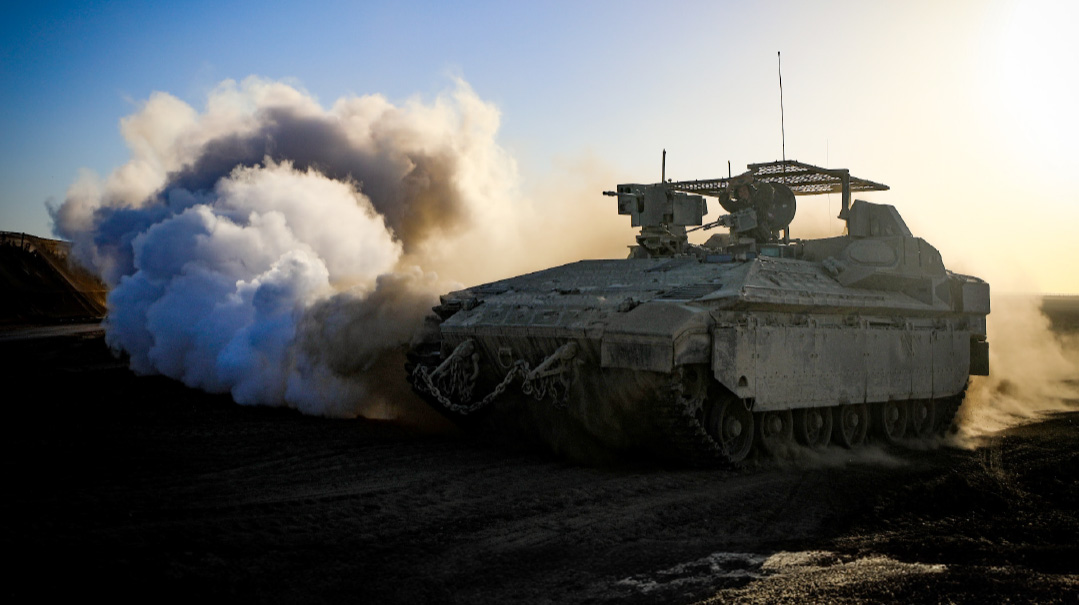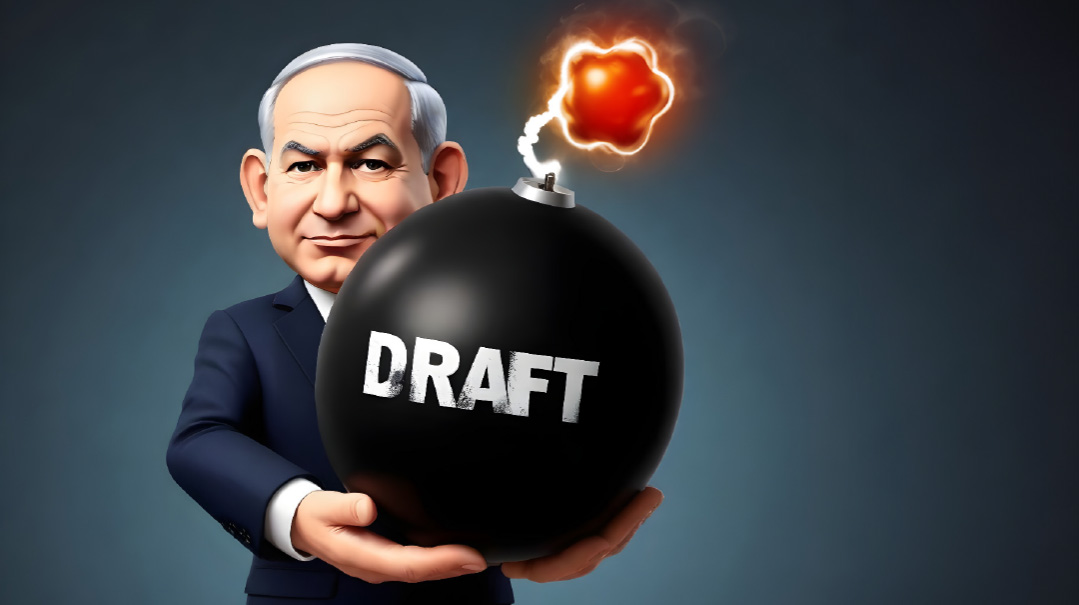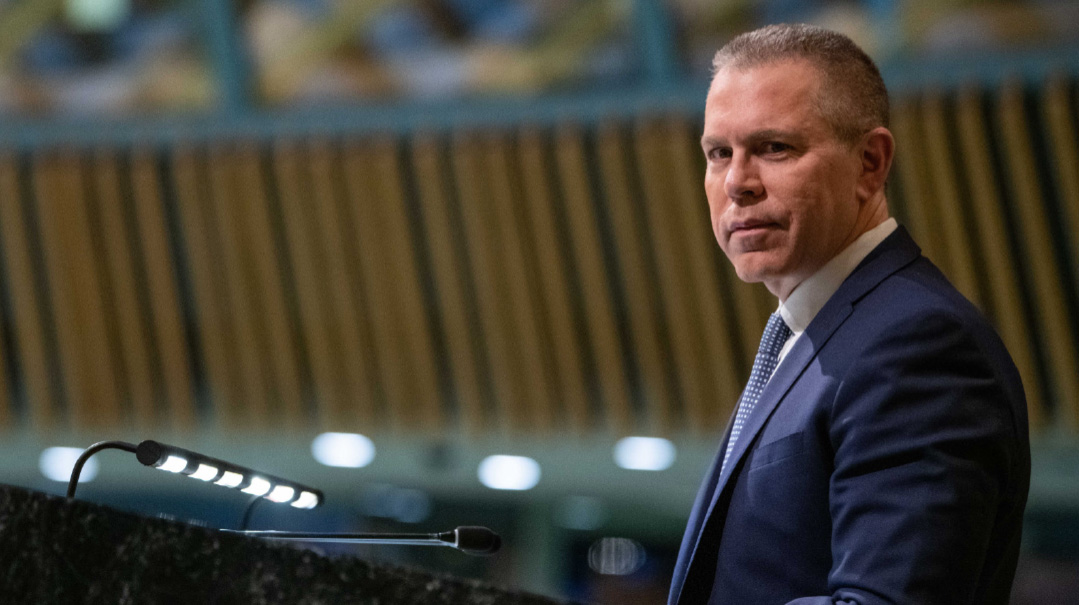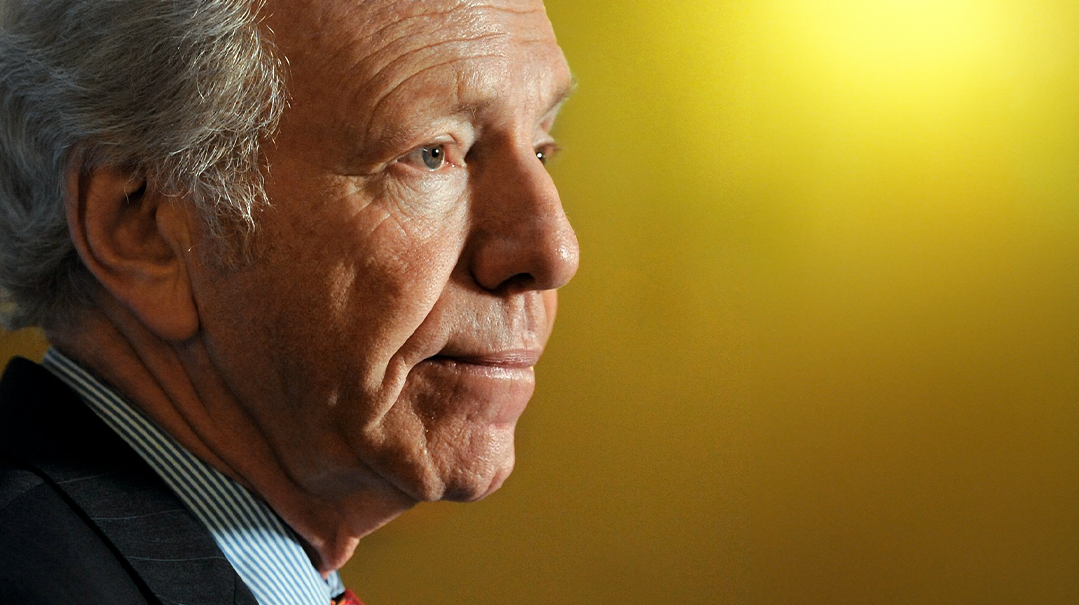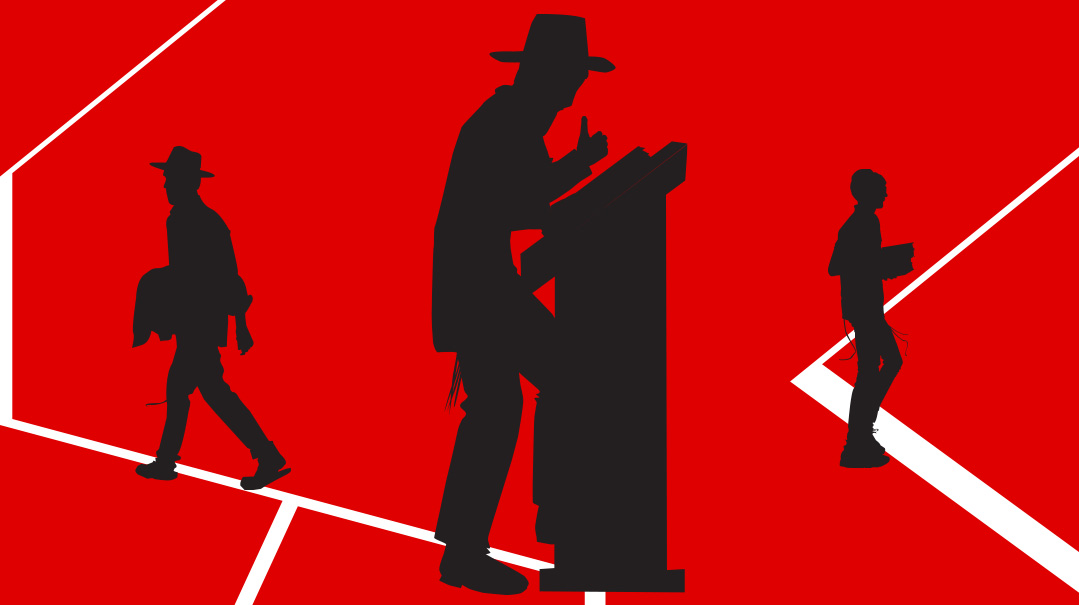Voices from the Battlefront


From behind the Ukrainian border, their stories emerge — accounts of courage, faith, and hope
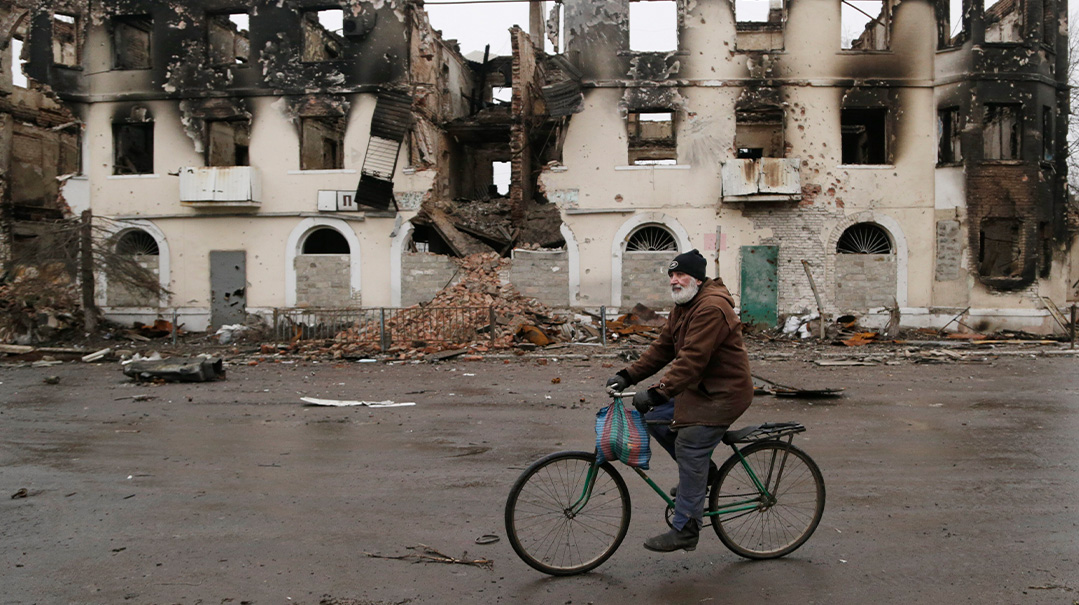
Suddenly, Refugees
Kozlova family, Kyiv
“We had no time to eat breakfast.”
War caught the Kozlova family unaware. At 6 a.m. on that fateful Thursday morning, they woke to the sounds of Kyiv — a few miles distant — under bombardment. By 7 a.m., their comfortable life was over, and they were refugees fleeing Ukraine with little more than the clothes on their backs.
“When the news of possible war started a few months ago, no one believed that Russia would actually attack,” says Nomi Kozlova, a mother of four who was the dorm mother in the Beis Aharon V’Yisrael school in Kyiv that is affiliated with the Stoliner chassidus. “Both Ukraine and Belarus are considered like brother nations to Russia, and people in each country have relatives in the other.
“The fact that Russia had seized Donetsk and Luhansk in the east in 2014 felt distant, because it’s hard to feel the pain of people far from you.”
Even the night before the Russian onslaught began, Nomi’s husband, Rabbi Koslova — a Kyiv native with connections to government figures — heard from his sources that war wasn’t imminent.
But if not for a doctor’s visit, the Koslovas would have been safely out of the firing zone.
Two weeks before the attack began, the Stoliner Rebbe had instructed his community of almost 200 people to leave Ukraine’s capital, and head to Mezhibuzh, in the country’s west.
“I told the kids that we’d have to close the dorms, even though at that stage school was working like normal,” says Nomi Kozlova. “We gave parents a choice to send their children with us to safety. Fourteen out of the 35 joined us, because they knew that in Mezhibuzh it would be fun, like summer camp.”
After a week in the west, and with war apparently nowhere on the horizon, the Kozlovas returned to their home to keep a doctor’s appointment. Life in the capital continued as normal, and they decided to stay the night in their apartment.
At 6 a.m. the next morning, the Kozlovas awoke to the sound of shelling and the dread realization that the unthinkable had happened. “We had no time to eat breakfast. We just took clothing and documents and left.”
Thankfully, their car had enough gas to avoid the massive lines forming at gas stations, and before road blocks were in place, they were able to head southwest back to the children in their care. Sitting in the back, witnessing a country heading to war, were the Kozlovas’ own young children.
Plans were constantly changing as the main group — nine minivans and a bus — was first going to head to Romania, and then Moldova.
And then came the shock: at the Moldova border, the Kozlovas were turned back. A new law had come into force an hour before, barring exit for men of draft age.
Exhausted from a day on the road, the family managed to find a hotel room in Chernivtsi, a major town where the local rabbi had taken over the facility for Jewish refugees.
By Friday morning, the convoy from Mezhibuzh had arrived, and a new plan began to form: to head north to Belarus, essentially into the war zone.
“We left Chernivtsi just before Shabbos, and there was no traffic because everyone was heading the other way. It was emunas chachamim to trust the Rebbe and head to Belarus. Along the way, we were stopped at a Ukrainian checkpoint, and told them that we were going north to pray at the graves of tzaddikim.”
At one point, the convoy found itself alongside a line of Ukrainian armored vehicles, and they realized that they were in danger of being caught up in a Russian attack.
“Suddenly, we saw one of the tanks fire into the air. It was the Ukrainian army warning their own soldiers in the forests alongside that they weren’t Russian. That was the scariest moment of our escape.”
As they approached the Belarussian border, their ordeal wasn’t over. The road was blocked, and it was only with the help of satellite maps that another way was found.
But the bus driver — already paid massive amounts to convince him to head into the path of a Russian army advancing from Belarus — refused to go further.
“Send one of the vans ahead,” he said. “If they make it over, I’ll follow.”
One car in the convoy had Belarussian license plates, and its occupants held Belarussian passports. They bravely agreed to go first, and they made it through to the border unscathed.
The rest of the convoy followed, and after a few hours during which money changed hands to convince the Belarussian border guards to let in those with no documents, the entire convoy made it to safety.
“Even across on Belarussian soil, the war followed us. We saw rockets fired by Russian forces in Belarus at Ukraine,” says Nomi Kozlova.
While the Kozlova family arrived intact, their young charges are all far away from their parents, most of whom remain in Ukrainian territory. The youngest is eight years old, and the others range in age from 14 to 20.
“They cry and they laugh — so long as they can speak to their parents, who are left behind there, they get by. But it’s very difficult. If anything happened to their parents, I wouldn’t know how to calm them.”
Ten days after her family’s ordeal began, and waiting to travel to Israel. Nomi Kozlova knows that nothing will ever be the same again. “We had such a good life there, but they took away our lives.”
—Gedalia Guttentag
War Diaries
Rabbi Nachum Ehrentreu, Zaporozhye
“We’re the last remaining address for the city’s Jews.”
Rav Moshe Weber, Dnipro
“We didn’t take matzos for Pesach or even a megillah.”
“At this moment, on Motzaei Shabbos Kodesh, the feeling here is similar to what we experience before Ne’ilah on Yom Kippur — complete mesirus nefesh,” says Rabbi Nachum Ehrentreu, Chabad shaliach in Zaporozhye, Ukraine. “The noose around the city is tightening.”
Zaporozhye and Dnipro, two large cities in Ukraine’s southeast, about 350 miles and 240 miles southeast of Kyiv, respectively, are on the front lines of the Russian advance.
Zaporozhye (population 723,000, transliterated from Ukrainian as Zaporizhzhia) is more in the direct line of fire: Nearby is the largest nuclear power plant in Europe, which was seized by Russian troops over the weekend after being subjected to artillery shelling on Friday. First responders extinguished a fire that had broken out at the plant, which supplies half of Ukraine’s electricity, and radiation levels were normal as of press time. The local airport has also been targeted by Russian missiles.
“As far as we know, Russian forces have encircled the city, and are only 25 kilometers away,” says Rabbi Ehrentreu. “No one enters, no one leaves. Even within the city, you can’t wander freely from, as Ukrainian forces have set up roadblocks. The fear of Russians taking the city is very real.”
Dnipro, with about a million people, about an hour up the river Dniepr from Zaporozhye, has a much larger Jewish population (around 50,000), and although it is at a remove from the fiercest fighting, it is beginning to feel the pressure. Seeing what is happening in Zaporozhye and other nearby towns, many Jewish residents of Dnipro are not waiting to see what happens.
“On Wednesday I realized that we no longer had a choice and we would have to leave,” says Rabbi Moshe Weber, Dnipro’s Chabad shaliach.
Rabbi Weber describes a complicated situation that was changing from minute to minute. His family, along with a few others, is departing for Israel.
“The suspense was enormous,” he says. “A smaller neighboring city had just been captured by the Russians after heavy fighting. Anyone who could evacuate, left.”
Aside from its nuclear plant, Zaporozhye is strategically situated on the line of advance for Russian troops approaching from Crimea. Many fierce battles are being fought nearby, and Rabbi Ehrentreu says the sound of missiles falling can be heard for perhaps 20 hours every day.
“The explosions sound very close,” he says.
Each evening at 5 p.m., a general curfew takes effect, lasting until the morning. During these hours, Rabbi Ehrentreu says, everyone is warned to stay inside, and any civilian in the street risks being fired at.
“We shluchim are trying to use the time before the curfew starts to hand out food supplies and any other kind of humanitarian aid to anyone in need of it,” he says.
Rabbi Weber says that there was no time to explain to his children the family’s decision to flee the encroaching chaos in Dnipro.
“We abandoned all our belongings and left,” he says. “We didn’t really have leisure to explain anything. Together we had to adjust to sirens, explosions, and a rapidly changing situation. The streets were filled with cars waiting in line at gas stations or food stores. There were endless columns of cars heading west to Lviv, on the Polish border.”
Rabbi Weber drove out with security protection, and is staying in constant contact with his kehillah in hopes of rejoining them as quickly as possible.
“ ‘B’rega katon azavticha [For a brief moment have I forsaken you, Yeshayahu 54:7],’ and with Hashem’s mercy we’ll return even stronger,” he says. “We didn’t take matzos for Pesach or even a megillah.”
The option of escape is no longer open for Rabbi Ehrentreu and his family. They lie in wait for the Russian forces expected to sweep into the city.
“My house has a bomb shelter, so I’m currently hosting ten families,” he says. “In addition, the shul is also open and it has a safe basement. Every time the sirens blare, Jews and non-Jews alike, including infants and small children, come running to the shul to take shelter. It’s a hard sight.”
Fear for the future runs high in his kehillah, says Rabbi Ehrentreu. Although he and his family are fairly well supplied with food and other basic necessities, his thoughts are about all the Jews in the city. With consulates closing up shop, he is the only one they can turn to.
“A shaliach is like a captain, the last to leave his ship,” he says. “We’re the last remaining address for the city’s Jews. And our task is to provide assistance wherever needed and breath hope into frightened people.”
He tells of a farbrengen held in the shul after Shacharis that drew some 25 people, after which they recited the entire Sefer Tehillim. He’s doing whatever he can to offer spiritual support.
“Throughout the day my phone rings nonstop with calls from the city’s Jews,” he says. “Many just want to know if we’re still in the city and what our plans are. We’re able to assure them all that we’re staying here and don’t have a thought of leaving, even temporarily. That infuses people with hope and with an appreciation for our mission.”
To anyone asking how they can help, Rabbi Ehrentreu responds, “The best help you can give us is reciting Tehillim and being mekarev your fellow Jews.”
Rav Mendy Glitzenshtein, Chernivtsi
“They arrive here burned out and at their wit’s end.”
Chernivtsi — widely known by its Yiddish name, Chernovitz — was a thriving Jewish center throughout much of its history. Located in Ukraine’s southwest, the city of 265,000 has changed hands often, in various periods flying the flags of Poland, the Austrian Empire, Romania, and the Soviet Union. There were times when Jews here did not know who their king was. Although Chernivtsi is far from the fighting, it is feeling the effects.
Rabbi Glitzenshtein, the local Chabad shaliach, jokes that over the past week the city has returned to its “glory days,” with a burgeoning Jewish refugee population.
“Since that fateful Thursday when the war broke out, thousands of refugees have streamed into the city on their way to the Romanian border,” he says. “The Jewish refugees here outnumber the others, probably because they have a destination they can continue on to from here if need be — Israel.”
Rabbi Glitzenshtein says most refugees are fleeing for Poland, but reports of crowding there are sending thousands his way. The refugees tell him the road is long, exhausting, and nerve-racking, with massive traffic jams extending the trip to 30 or 40 hours.
“They arrive here burned out and at their wit’s end,” he says.
Rabbi Glitzenshtein and his family have been very busy, helping Jewish refugees obtain lodging and food, arranging accommodations for hundreds every night at student dormitories.
“In addition, we have a huge dining room, where we provide meals to anyone in need,” he says.
Many of them also run into obstacles at the border, due to various bureaucratic or legal issues, and Rabbi Glitzenshtein helps them get through.
“We have our ways to try and sort that out,” he says.
For now, the situation in Chernivtsi isn’t considered particularly dangerous. Although sirens have blared several times over the past few days, the residents’ considerable anxiety is driven more by the suspense than anything else.
“This week there’s been a curfew every night starting at 10:00 p.m., apparently out of fear of aerial bombings,” says Rabbi Glitzenshtein. “But so far we haven’t been bombed, baruch Hashem. My closest experience of the war is that I live opposite the governor’s residence, which is constantly surrounded by dozens of Ukrainian soldiers standing guard.”
—Eliezer Shulman
“Lviv Is My Heritage”
Meylach Sheykhet, Lviv
“I’m not scared of the Russians,” he says “but even if I have to go, I’ll always come back. This place is my heritage.”
It’s Friday in Lviv, and Meylach Sheykhet, born and raised in the western Ukrainian city, is preparing for Shabbos in between sirens. Unlike besieged, battered Kyiv 600 kilometers to the east, life in Lviv after a week of war is relatively normal. Stores are open, still stocked with basics, and life is interrupted only by dashes to the basement.
Streams of refugees seeking shelter in Western Europe traverse the city on their way out of Ukraine’s torment. But Sheykhet — who lived through the Soviet era as a child of the only religious family in the city — is not joining them.
“Putin can’t take Ukraine — he’ll break his teeth on Kyiv,” says Sheykhet. “I have neighbors who’ve gone off to fight. The country has learned from what happened in Crimea, and they’re ready to fight until the end and not go to their fates like sheep.”
The confidence that this Lviv native feels in his country’s military is one that he says is common across the country. It remains unshaken despite the terrible price that Putin’s forces are exacting as they tighten their grip on Ukraine’s cities.
The reason that Meylach Sheykhet intends to stay despite possessing American citizenship is because of a connection to his birthplace.
“It was very difficult when I was growing up here,” he says in his Russian-Yiddish accent. “For years we had no kosher meat and occasionally got a glimpse of chicken for Shabbos. Despite his education, my father — who had been a yeshivah bochur prewar — took a very simple job so that he could keep Shabbos properly.
“He and my mother, who was from a family of Chernobyler chassidim, would go around at night giving tzedakah. I was called to the KGB a few times for keeping mitzvos, and my melamed was sent to Siberia for teaching Torah.”
“When I was growing up,” continues Sheykhet, “I complained to my father about the very Jewish name — Meylach — that he’d given me even on official documents. ‘Good times are coming,’ he said, and that’s what happened. I lived to see the rebirth of Yiddishkeit here.”
When Jewish visitors started to trickle into Ukraine after Gorbachev opened up the country, Sheykhet — by trade a telecommunications expert — was on hand to guide the rabbanim who came to search for the kivrei tzaddikim that dot the country’s west.
He founded a kehillah named Turei Zahav after Rav David Halevi — more familiar as the Taz — whose light had shone from Lviv in the 17th century.
And when he uncovers another piece of Ukraine’s Jewish heritage, he fights tenaciously for its restoration to the community. “Last year alone, I went to court 250 times against the authorities to protect sites of our heritage,” he says.
Having lived through Soviet oppression and witnessed the birth of a modern Ukraine, Sheykhet is impatient with the all-encompassing talk of anti-Semitism when it comes to his home country.
“The fact that there were so many sages and beautiful shuls here shows that anti-Semitism wasn’t the only thing about this country,” he says. “And the country has become much more tolerant. Look how they elected Zelensky by a massive majority. We don’t like it when people generalize about Jews, so we shouldn’t generalize about others.”
Recently married and with a three-month-old son, the Lviv native thinks that he won’t be forced to flee.
“I’m not scared of the Russians,” he says “but even if I have to go, I’ll always come back. This place is my heritage.”
—Gedalia Guttentag
(Originally featured in Mishpacha, Issue 902)
Oops! We could not locate your form.
